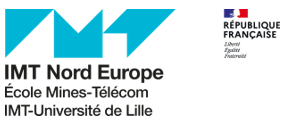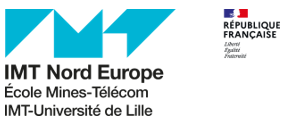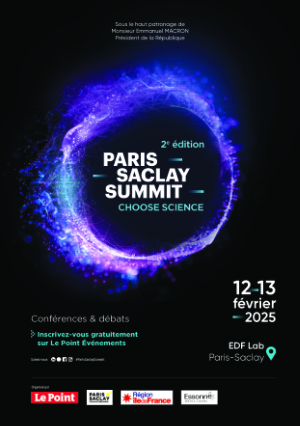Moments angulaires dans la photoionisation chirale
| ABG-127413 | Master internship | 4 months | 660 euros |
| 2024-12-05 |
- Physics
- Chemistry
Employer organisation
Website :
CELIA est un laboratoire de recherche de l'Université de Bordeaux. Voir www.celia.u-bordeaux.fr.
Description
Un stage pour Master2 (ou équivalent) est disponible au laboratoire CELIA de l'Université de Bordeaux (www.celia.u-bordeaux.fr). Il concerne l'étude théorique de molécules chirales.
Résumé en anglais:
Chiral molecules are of paramount importance in biology because they are building blocks of organic matter, including human beings. Chiral molecules appear in pairs of left- and right-handed enantiomers, where their nuclear arrangements present non-superimposable mirror twins. It is of paramount importance to distinguish the enantiomers since they interact differently with their environment as soon as this latter presents a chiral character, which is the case of most chemoreceptors of living organisms. Enantiomers are generally identified through their interaction with circularly polarized light carrying spin
This will be theoretically studied in the framework of the internship, focusing of the angular distribution of the photoelectrons, beyond [2].
Les candidats peuvent soumettre leur candidature en ligne ou par mail à Bernard Pons.
Une thèse est prévue après le stage.
Les financements pour le stage et la thèse sont déjà disponibles.
Références:
[1] S. Beaulieu et al., New. J. Phys. 18, 102002 (2016) ; V. Wanie et al., Nature 630, 109 (2024)
[2] J.-L Bégin et al, https://doi.org/10.21203/rs.3.rs-4768665/v1
Profile
Etudiant Master 2 ou équivalent
Starting date
Vous avez déjà un compte ?
Nouvel utilisateur ?
Get ABG’s monthly newsletters including news, job offers, grants & fellowships and a selection of relevant events…
Discover our members
 PhDOOC
PhDOOC  Tecknowmetrix
Tecknowmetrix  Institut de Radioprotection et de Sureté Nucléaire - IRSN - Siège
Institut de Radioprotection et de Sureté Nucléaire - IRSN - Siège  MabDesign
MabDesign  Groupe AFNOR - Association française de normalisation
Groupe AFNOR - Association française de normalisation  Laboratoire National de Métrologie et d'Essais - LNE
Laboratoire National de Métrologie et d'Essais - LNE  ONERA - The French Aerospace Lab
ONERA - The French Aerospace Lab  Institut Sup'biotech de Paris
Institut Sup'biotech de Paris  MabDesign
MabDesign  Aérocentre, Pôle d'excellence régional
Aérocentre, Pôle d'excellence régional  ANRT
ANRT  TotalEnergies
TotalEnergies  Nokia Bell Labs France
Nokia Bell Labs France  SUEZ
SUEZ  CESI
CESI  Ifremer
Ifremer  Généthon
Généthon  CASDEN
CASDEN  ADEME
ADEME
-
JobPermanentRef. ABG125662Association Bernard Gregory (ABG)Paris (3ème) - Ile-de-France - France

Responsable Recrutement, Relations Entreprises et Partenariats
Open to all scientific expertisesAny -
JobPermanentRef. ABG127643IMT Nord Europe- Les Hauts de France - France

Enseignante Chercheuse ou Enseignant Chercheur (Professeure ou Professeur) en Data/IA
Digital - Data science (storage, security, measurement, analysis) - TelecommunicationsConfirmed -
JobPermanentRef. ABG127640IMT Nord Europe- Les Hauts de France - France

CHARGEE/CHARGE DE RECHERCHE Génie et physique des matériaux polymères
Energy - Materials scienceConfirmed



